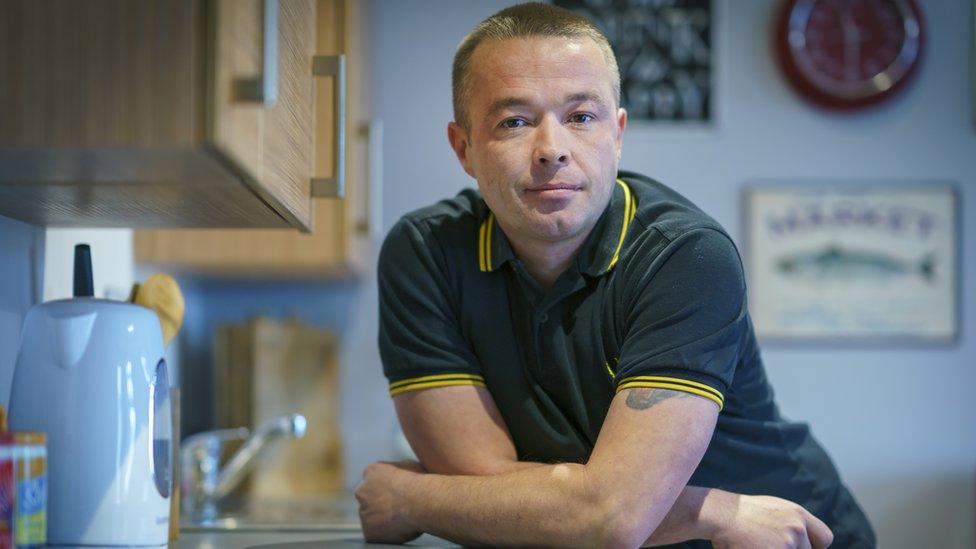Housing crisis: Homeless charities warn of perfect storm
- Published

Steven Burke has secured a flat on the outskirts of Swansea after 20 years of drifting in and out of homelessness
"I'm literally one of the lucky ones, some people don't make it."
Sitting in his new flat on the outskirts of Swansea, Steven Burke finally feels settled after 20 years drifting in and out of homelessness.
But, across Wales, many thousands are still waiting for suitable accommodation.
Homelessness charities have warned of a "perfect storm" despite the Welsh government saying it is "very proud" of its response to the crisis.
"There's no words to describe how amazing I feel right now," said Steven.
With support from staff and volunteers at Housing Justice Cymru, the 36-year-old has been able to decorate the flat and he had a new carpet fitted earlier this week.
"OK, carpet's just carpet for some people but for me it's a luxury," he said.
Across Wales thousands of people are waiting for a similar outcome to Steven - the latest latest Welsh government figures show there were 8,652 people in temporary accommodation at the end of September, with the number increasing since August 2020, external.
However, charities say the true total is closer to 14,000 once refugees, including people fleeing the war in Ukraine, are taken into account.
"We do have a bit of a perfect storm in Wales at the moment in relation to our housing and homelessness crisis," Bonnie Williams, director of Housing Justice Cymru, told the BBC's Politics Wales programme.
"I would say it's the result of many factors coming together at once - some things which were planned, such as [the Welsh government's] change of policy direction to end homelessness, which is absolutely the right thing to do.
"However, there were some issues that have come along the way that we didn't expect such as Covid, such as the situation in Afghanistan and, of course, Ukraine."
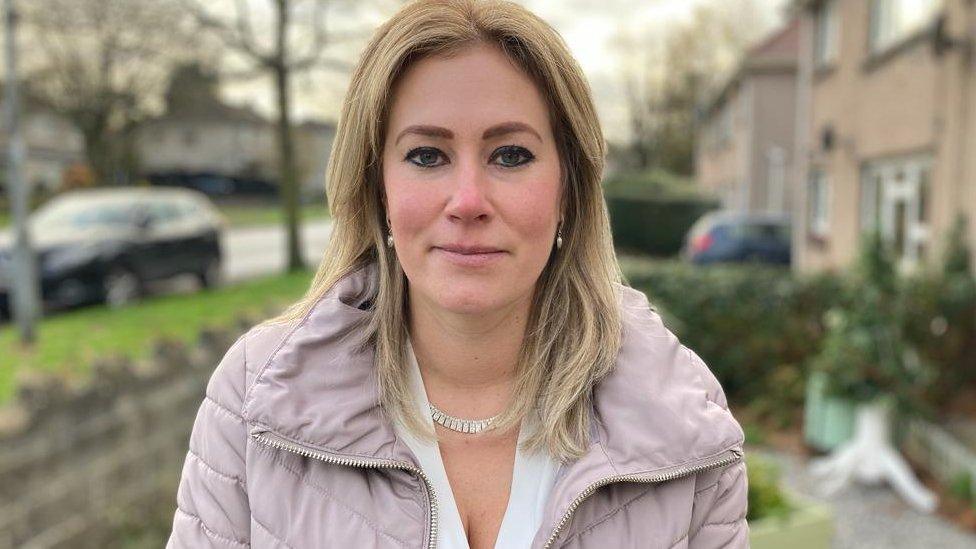
Bonnie Williams, director of Housing Justice Cymru says a combination of factors are worsening the situation
The cost of living crisis also means that "people who would never have thought they would ever end up experiencing homelessness are".
The Welsh government adopted its "no-one left out" , externalstrategy at the start of the pandemic, whic has the backing of housing charities and organisations.
But the sector has warned that more suitable accommodation must be built for the strategy to succeed.
The Welsh government has committed to building 20,000 low-carbon social homes during this Senedd term.
However, the minister responsible for the policy, Climate Change Minister Julie James, recently admitted the pledge was "hanging by a thread".
Ms James said she was "very proud" of the response to the homelessness crisis, saying £65m had been invested into the "transitional accommodation programme" to provide 1,000 homes in the next 18 months, with the idea being it sets people up to find their own permanent accomodation in future.
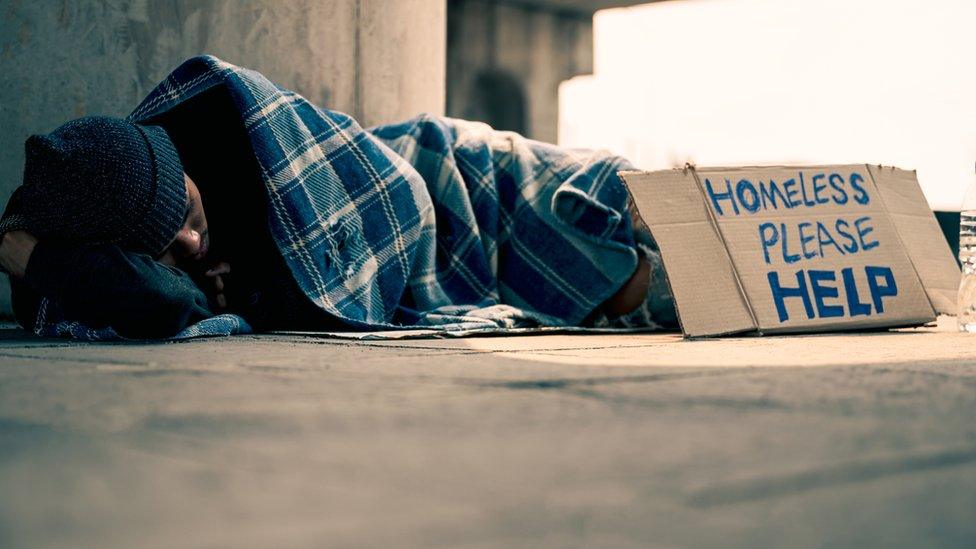
Minister Julie James called the cost of living crisis "a tsunami"
Issues around the shortage of suitable accommodation are compounded by pressures on the private rental sector.
Landlords say they are facing increased costs linked to the economic situation and the demands of new legislation, external, meaning many have said they are looking at leaving the industry or changing their business model.
"You've got mortgage rates going up so you've got vastly increased monthly outgoings," says Steven Blestoe, from the National Residential Landlords Association Wales.
"You've got new 'fit for human habitation' requirements, but you've got the workmen who are putting their prices up, so you've got this perfect storm where landlords are looking at their investments [and] they're looking at the relatively unregulated short-term holiday lets market.
"We've found 64% of current landlords are looking to sell at least one of the properties, so forget where we are now, look at where we're going when 64% of our industry are looking to leave."

LOOKING FOR A NEW PODCAST?: The Emiliano Sala Story
INJUSTICE OF A HANGED MAN: The shocking execution of Mahmood Mattan

- Published28 October 2022
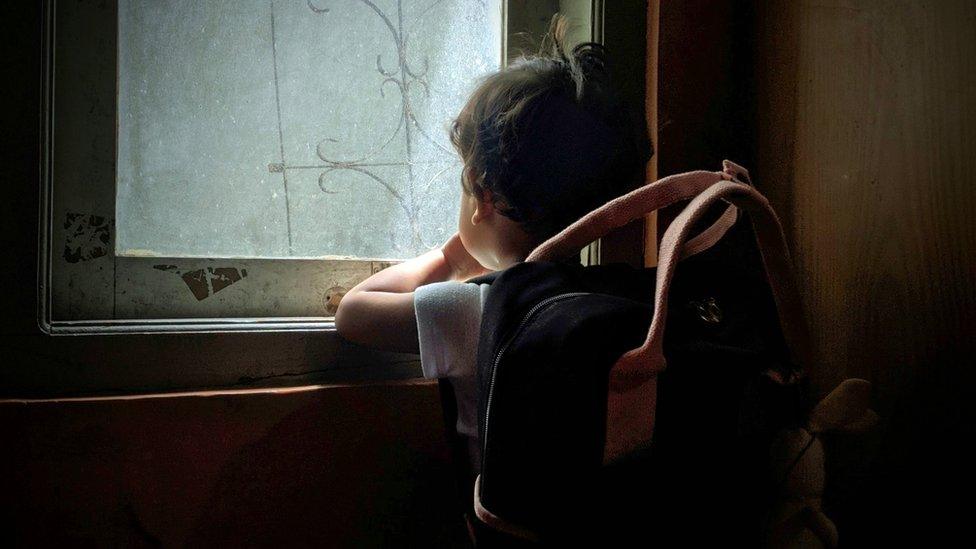
- Published26 October 2022

- Published3 January 2022
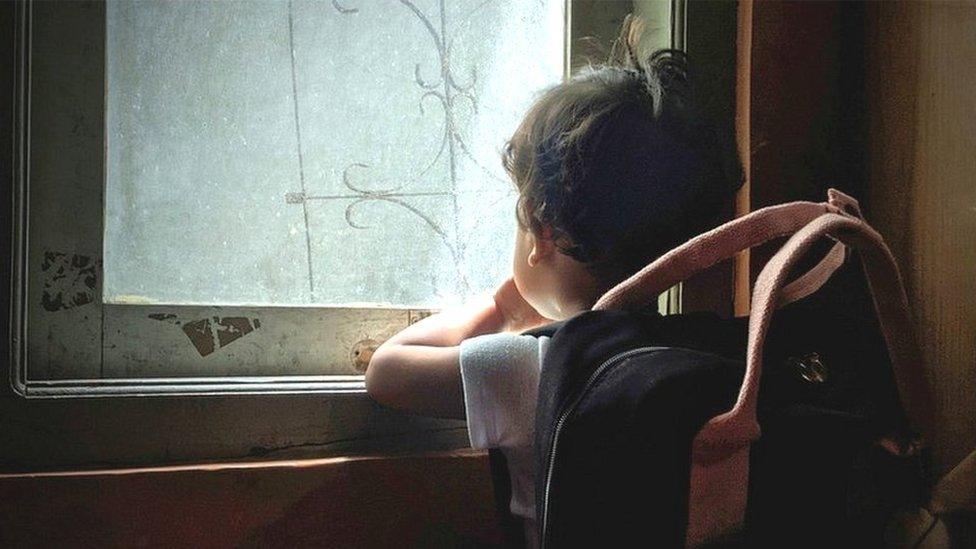
- Published30 November 2021
